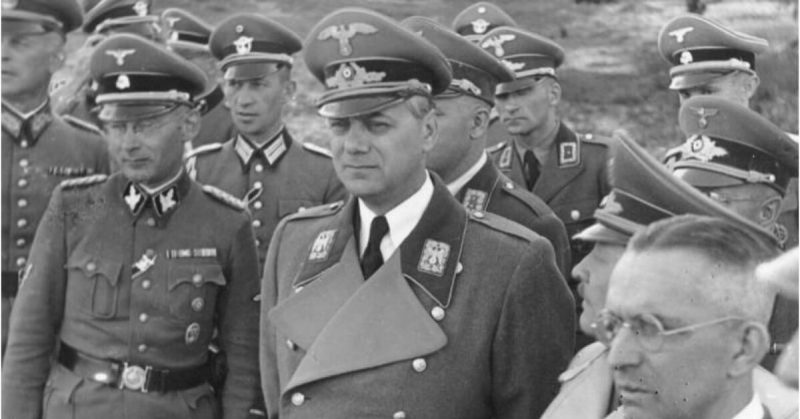The rise and fall of the German Nazi Party witnessed the rise and fall of many horrendously evil men. In 1945, the Nazi government and the empire it had founded neared its doom. Many of those men tried to use their privileged positions to escape the consequences of their actions.
One of those men was Erich Koch, Gauleiter of East Prussia.
Rise of a Nazi
Koch was born in Elberfeld in 1896. Between 1915 and 1918, he fought for Germany in WWI, serving with distinction. After Germany’s defeat in that war, and with a massive reduction in German armed forces, he joined the Freikorps in Silesia. They were paramilitary units fighting against Communists and Polish incursions into eastern Germany. Many men who went on to be senior Nazis served in their ranks.
A veteran disappointed by the state of post-WWI Germany, Koch was a natural recruit for the Nazi Party. He joined in 1922 and served in a variety of posts within the party. He was arrested several times by the French authorities in the occupied Ruhr for his activities there.
Governing East Prussia
In 1928, Koch was made Gauleiter of East Prussia – the regional leader of the Nazi party. He then became a Reichstag representative for East Prussia in 1930. When the Nazis completed their seizure of power in Germany, he was made Oberpräsident of East Prussia in 1933.
As Gauleiter, Koch pursued a very Nazi approach to governing East Prussia. The province was run ruthlessly according to his central plan.
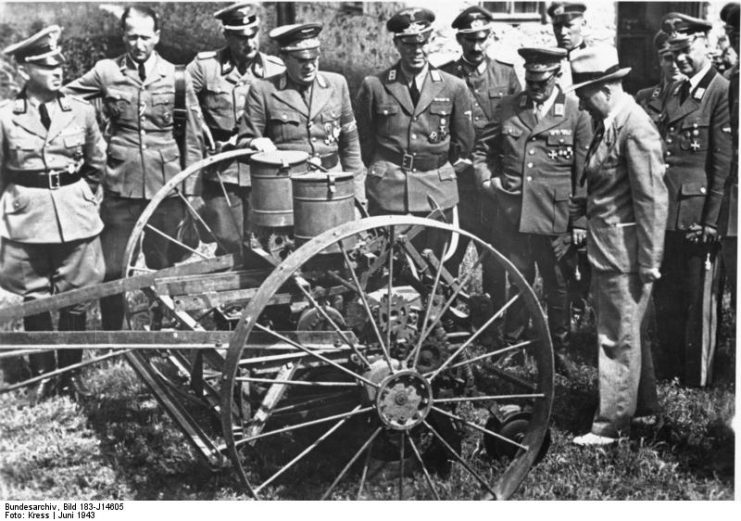
Koch sought to improve and modernize East Prussia, whether people liked it or not. He centralized agricultural efforts despite opposition from the people working the land. He wanted to industrialize a mostly rural province. He used emergency relief programs to improve the road networks and the area.
Koch dealt ruthlessly with any local opposition, both inside and outside the party. One of his strongest opponents was R. Walther Darré, the Reich Peasant Leader and Minister of Agriculture. Darré was a neopagan with a romantic view of the countryside. Koch was an outspoken Christian seeking to turn rural Prussia into a hive of modern industry. Darré sent representatives to put forward an agriculturalist approach to the future of East Prussia. Koch had them arrested so they could not interfere with his modernization agenda.
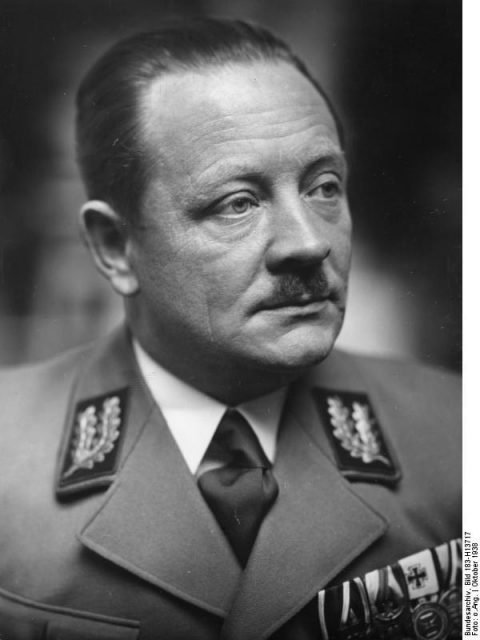
WWII
WWII saw a vast expansion of Koch’s authority. He was made governor of territories that eventually ran from the Baltic to the Black Sea, including swathes of Poland, Belarus, and Ukraine.
Koch also controlled the Gestapo and police forces in areas under his control. As Gauleiter, his authority within the Nazi party was second only to the Fuhrer himself. It gave him ultimate power to assert his policies across the territories in his grasp.
Although he differed from many Nazis in his firm Christian beliefs, Koch agreed with hardline adherents in his approach to race. He was a firm believer that ethnic divisions were an inherent and important part of human nature. He saw ethnic Germans as innately superior to other groups, including the Poles and Ukrainians living under his authority. He closed Ukraine’s schools, saying that everything Ukrainian children needed to know would be taught to them by their German superiors.
His rule was brutal. He took a leading part in the persecution of Jews across his territories. His violent and authoritarian actions in Ukraine fed resentment that led to a rising tide of partisan actions against the occupiers.
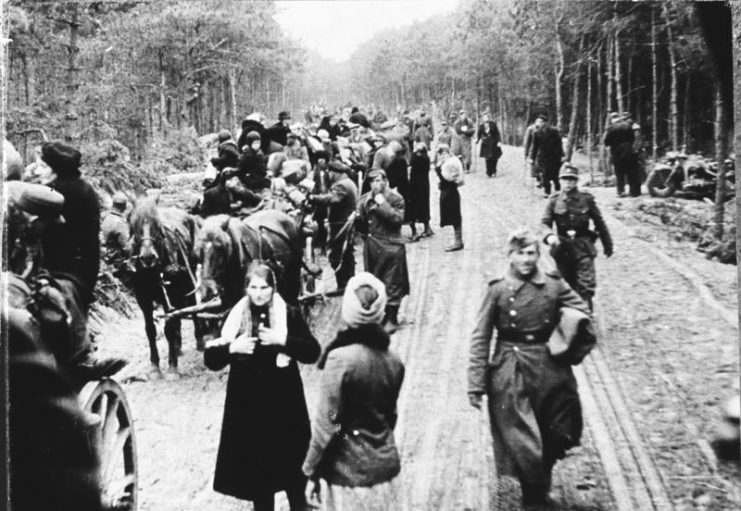
Fleeing Consequences and Responsibilities
As the Third Reich began to crumble and Soviet troops advanced into his provinces, Koch should have been organizing their defense. Instead, he focused on saving his own skin.
Koch fled the occupied eastern territories. He gathered his possessions, loaded them in two railway wagons, and had them sent back to Germany for safekeeping. Some of his most prized property was put into an armored truck then flown to the port of Libau.
The Gauleiter and his staff were also heading to Libau. There, he had two icebreaking ships waiting to take them through the Baltic to safety.
The self-serving nature of Koch’s actions was only made worse by his hypocrisy. Millions of German civilians in East Prussia lived in fear of what would happen when the Soviets took over by force. They tried to escape to the German heartland. Rather than help the refugees, Koch condemned anyone asking for evacuation, calling them traitors and cowards. When the Fourth Army became encircled in East Prussia, it tried and failed to break out and return to Germany. Koch condemned the army for trying to flee the Soviets. His propaganda persuaded peasants to stay where they were and suffer under Soviet rule, while he fled with a boatload of luxuries.
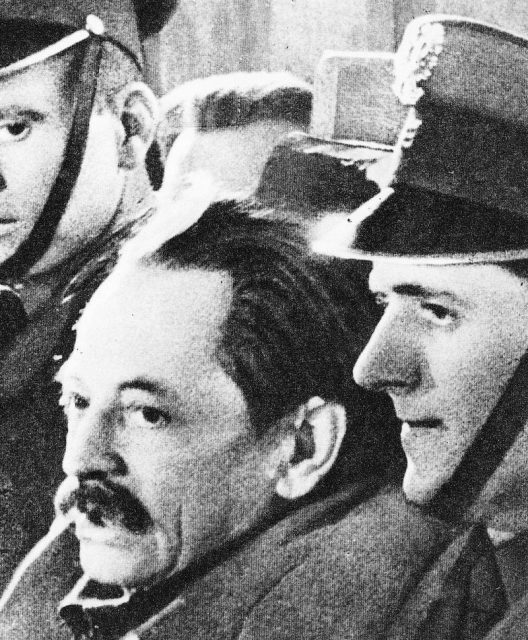
After the War
Disguised as an army officer and carrying forged papers, he fled East Prussia on an icebreaker. For four years, the cruel and cowardly Koch avoided detection, but he could not run forever. In 1949, the occupying British caught him hiding in Hamburg.
As one of the most notorious Nazi leaders in Eastern Europe, Koch was handed over to the Poles to face the consequences of his crimes. From 1950 to 1958, he languished in a Polish prison cell while he awaited trial. When finally tried, he was condemned to death.
The sentence was never carried out. Allegedly for reasons of ill health, although many think it was because the Soviets believed he knew the location of looted Russian art. Koch remained in prison until his death in 1986.
In avoiding execution, had Koch evaded the consequences of his crimes? Perhaps, but 36 years in an Eastern European prison is not a life anyone would want. Koch may not have received the punishment many thought he deserved, but he certainly faced the consequences of his crimes.
Sources:
James Lucas (1986), Last Days of the Reich
